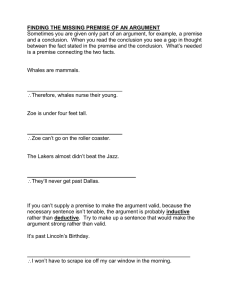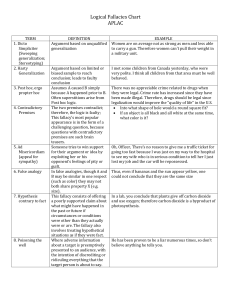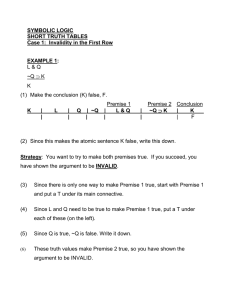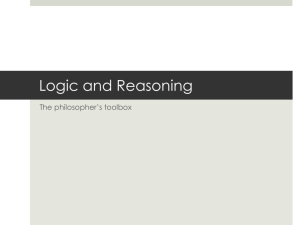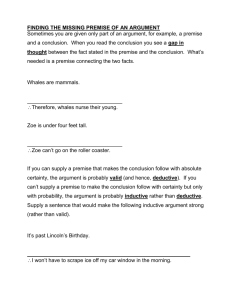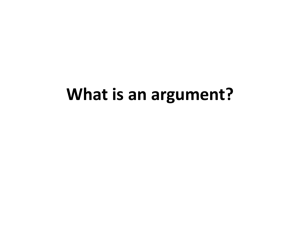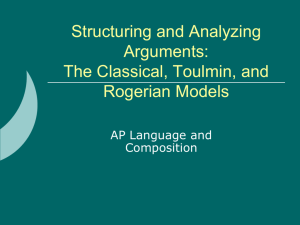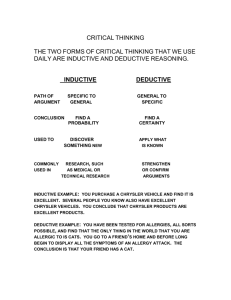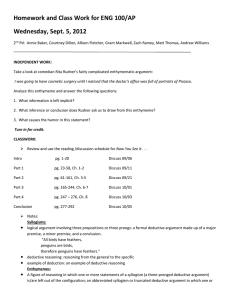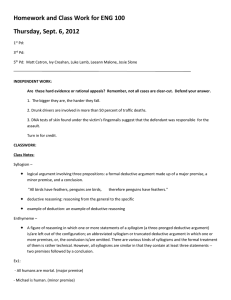AP Language Vocabulary – Argumentation
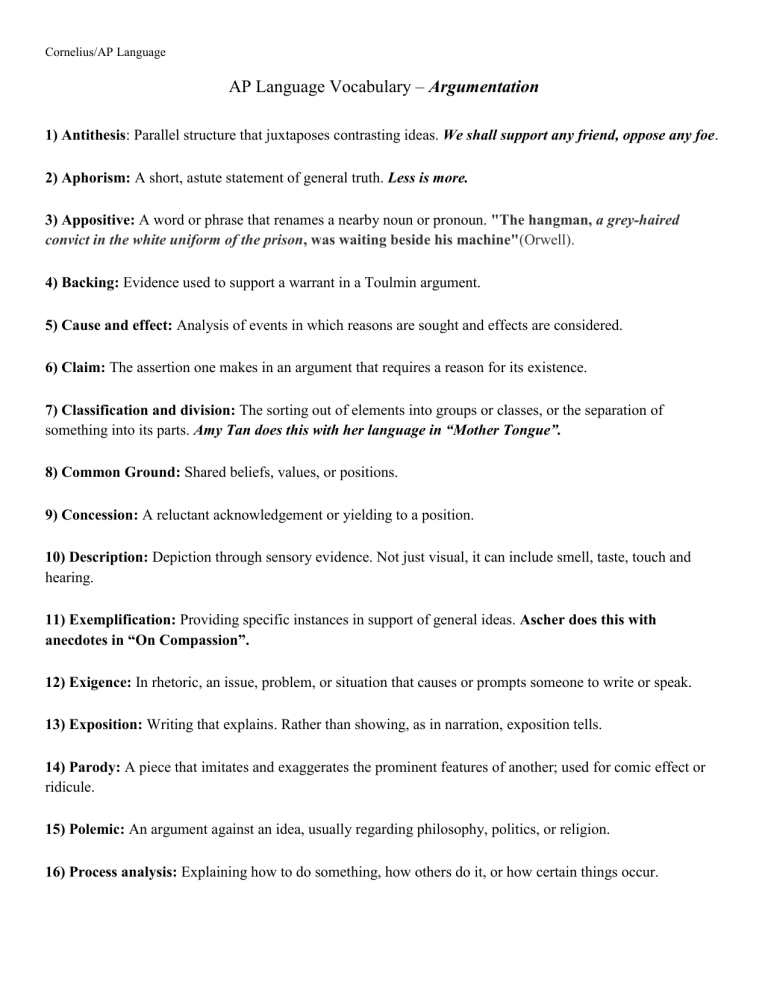
Cornelius/AP Language
AP Language Vocabulary – Argumentation
1) Antithesis : Parallel structure that juxtaposes contrasting ideas. We shall support any friend, oppose any foe .
2) Aphorism: A short, astute statement of general truth. Less is more.
3) Appositive: A word or phrase that renames a nearby noun or pronoun. "The hangman, a grey-haired convict in the white uniform of the prison , was waiting beside his machine" (Orwell).
4) Backing: Evidence used to support a warrant in a Toulmin argument.
5) Cause and effect: Analysis of events in which reasons are sought and effects are considered.
6) Claim: The assertion one makes in an argument that requires a reason for its existence.
7) Classification and division: The sorting out of elements into groups or classes, or the separation of something into its parts.
Amy Tan does this with her language in “Mother Tongue”.
8) Common Ground: Shared beliefs, values, or positions.
9) Concession: A reluctant acknowledgement or yielding to a position.
10) Description: Depiction through sensory evidence. Not just visual, it can include smell, taste, touch and hearing.
11) Exemplification: Providing specific instances in support of general ideas.
Ascher does this with anecdotes in “On Compassion”.
12) Exigence: In rhetoric, an issue, problem, or situation that causes or prompts someone to write or speak.
13) Exposition: Writing that explains. Rather than showing, as in narration, exposition tells.
14) Parody: A piece that imitates and exaggerates the prominent features of another; used for comic effect or ridicule.
15) Polemic: An argument against an idea, usually regarding philosophy, politics, or religion.
16) Process analysis: Explaining how to do something, how others do it, or how certain things occur.
Cornelius/AP Language
17) Premise (major, minor): Two parts of a syllogism. The concluding sentence of a syllogism takes its predicate from the major premise and its subject from the minor premise. Major premise: All mammals are warm-blooded. Minor premise: All horses are mammals. Conclusion: All horses are warm blooded.
18) Qualifier: Words and phrases which place limits on claims, such as: usually, sometimes, and in many cases.
19) Rebuttal: S trictly interpreted, it refers to argumentation meant to overcome opposing evidence and reasoning by introducing other evidence and reasoning that will destroy its effect.
20) Syllogism: A form of deductive reasoning in which the conclusion us supported by a major and minor premise.
21) Trope: Artful diction; the use of language in a nonliteral way, also called a figure of speech.
22) Warrant: The persuasive connection between a claim and a reason in a Toulmin argument. It is often an unstated assumption.
23) Zeugma: A construction in which one word (usually a verb) modifies or governs – often in different, sometimes incongruent ways – two or more words in a sentence. "She arrived in a taxi and a flaming rage."
(Lyons).
